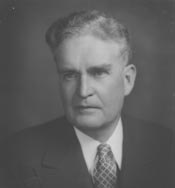A Quote by Theodore Roosevelt
It's not the critic who counts, nor the man who points out how the strong man stumbles, or where the doer of the deeds could have done better.
Related Quotes
hat whole phrase, "daring greatly," is from the Theodore Roosevelt quote that goes back to your original question of, what about the critics? And when I read his quote it was life-changing. "It's not the critic who counts; it's not the man who points out how the strong man stumbles or where the doer of deeds could have done the better.
It is not the critic who counts; not the man who points out how the strong man stumbles, or where the doer of deeds could have done them better. The credit belongs to the man who is actually in the arena, whose face is marred by dust and sweat and blood; who strives valiantly; . . . who at best knows in the end the triumph of high achievement, and who at worst, if he fails, at least fails while daring greatly.
Criticism is necessary and useful; it is often indispensable; but it can never take the place of action, or be even a poor substitute for it. The function of the mere critic is of very subordinate usefulness. It is the doer of deeds who actually counts in the battle for life, and not the man who looks on and says how the fight ought to be fought, without himself sharing the stress and the danger.
How interesting it would be to write the story of the experiences in this life of a man who killed himself in his previous life; how he stumbles against the very demands which had offered themselves before, until he arrives at the realization that he must fulfill those demands. The deeds of the preceding life give direction to the present life.
When you are not the doer how can the attachment happen? You do a small thing and you become attached. You say, "I have done this." You would like everybody to know that you have done this and you have done that. This ego is the barrier for the supreme understanding. Drop the doer and let things happen. That's what Tilopa means by being loose and natural.






























